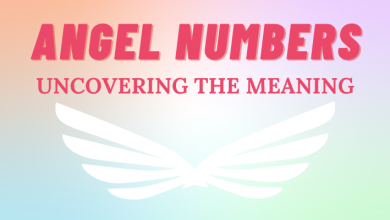Are Angels Asexual? Understanding the Gender of Heavenly Beings
As ethereal beings, angels have long been subjects of fascination and intrigue in many cultures and religions. One question that often arises is whether angels have a gender, or if they are asexual beings. In this article, we’ll explore the concept of angels as asexual, their gender identity in different belief systems, and the significance of this topic.
Angels have always been fascinating subjects of human imagination, and people often wonder about their nature, appearance, and gender. While many believe that angels are genderless, others claim that they have distinct masculine or feminine traits. In this article, we’ll delve into the topic of angels’ gender identity and explore various religious beliefs and cultural representations of these celestial beings.
What are Angels?
According to various religious traditions, angels are supernatural beings created by God or other divine entities to serve as messengers, protectors, or intermediaries between heaven and earth. They are depicted as luminous, powerful, and benevolent creatures that have a direct connection to the divine.
Angels in Different Religions
Different religious traditions have varying beliefs about the nature and role of angels. Let’s take a look at the concept of angels in Christianity, Islam, and Judaism.
Angels in Christianity
In Christianity, angels are viewed as messengers of God who carry out His will and communicate with humans. They are depicted as pure, holy, and powerful beings that have a special place in the hierarchy of heaven. The Bible mentions several archangels, such as Michael, Gabriel, and Raphael, who are believed to have important roles in God’s plan.
Angels in Islam
In Islam, angels are considered as a fundamental part of the divine creation and are believed to be made of light. They are seen as messengers of God who communicate His will to the prophets and carry out His commands. The Quran mentions several angels, such as Jibril (Gabriel), Mika’il (Michael), and Israfil, who have specific roles in the Islamic cosmology.
Angels in Judaism
In Judaism, angels are regarded as heavenly beings that serve as messengers of God and perform various tasks on His behalf. They are often depicted as warriors, guardians, or spiritual guides that help humans in their spiritual journey. The Jewish tradition also recognizes the existence of several archangels, such as Michael, Gabriel, and Raphael, who have different roles in the divine plan.
Gender Identity of Angels
The question of angels’ gender identity has been a matter of debate for centuries. Some argue that angels are genderless beings that transcend human categories, while others believe that they have distinct masculine or feminine traits. Let’s examine how different religious traditions address this issue.
Angels in the Bible
The Bible does not explicitly mention the gender of angels, but some scholars interpret certain passages as suggesting that angels are male. For example, in Genesis 6:1-4, the “sons of God” are said to have fathered children with human women, which some interpret as a reference to angels. In addition, many depictions of angels in art and literature show them as masculine figures with wings and robes, reinforcing the idea of their gender.
However, it is also argued that the concept of gender does not apply to angels, as they are spiritual beings that do not have physical bodies. Therefore, they are not subject to the biological distinctions between male and female.
Angels in Islamic Tradition
In Islam, angels are considered to be genderless and do not have any physical attributes. They are made of light and are neither male nor female. Therefore, they are not subject to the same distinctions as humans.
Angels in Jewish Tradition
In Jewish tradition, angels are also considered to be genderless and do not have physical attributes. However, they are often referred to in masculine terms, as the Hebrew language does not have a neutral gender. This has led some to interpret angels as male, but this is not a consensus view.
Significance of Angels’ Gender Identity
The question of angels’ gender identity may seem trivial, but it has significant implications in different contexts. For example, the idea of male angels may reinforce patriarchal attitudes and reinforce gender norms. Conversely, the idea of genderless angels may challenge traditional notions of gender and encourage more inclusive and egalitarian attitudes.
Moreover, the concept of gender may affect the way we perceive and relate to angels. For example, if we see them as masculine figures, we may be more inclined to associate them with qualities such as strength, protection, and authority. If we see them as genderless beings, we may be more open to different interpretations of their nature and role.
Misconceptions About Angels
There are several misconceptions about angels that have arisen from popular culture and folklore. For example, some people believe that angels have wings and halos, while others think that they are chubby babies with harps. These depictions are often based on artistic or literary conventions rather than religious texts or traditions.
Moreover, some people believe that angels are omnipotent and can grant wishes or perform miracles. However, in most religious traditions, angels are seen as subordinate to God and can only act within the limits of His will.
Angels in Popular Culture
Angels have been a popular subject in literature, art, and entertainment, inspiring countless works of fiction and non-fiction. Some popular examples include “Paradise Lost” by John Milton, “Angels in America” by Tony Kushner, and “Touched by an Angel” TV series. However, these depictions often diverge from traditional religious beliefs and may not accurately reflect the nature of angels.
Conclusion
The gender identity of angels has been a subject of debate in different religious and cultural contexts. While some argue that angels are genderless beings, others interpret them as having masculine or feminine traits. Regardless of their gender identity, angels are seen as celestial beings that have a direct connection to the divine and serve as messengers or intermediaries between heaven and earth. Understanding the nature of angels can provide insights into different religious beliefs and cultural representations.
FAQs
Can angels change their gender?
No, angels are considered to be genderless beings and do not have the ability to change their gender.
Why are angels depicted as male in art and literature?
This is often based on artistic or cultural conventions rather than religious texts or traditions.
Do angels have free will?
Most religious traditions depict angels as obedient servants of God and do not have free will in the same way as humans.
Are there any female angels in religious texts?
The Bible and Quran do not explicitly mention any female angels, but some scholars interpret certain passages as suggesting the existence of female angels.
Can humans become angels?
No, angels are considered to be a distinct category of beings that are
Source: https://numerologybox.com
Category: Angel Number



